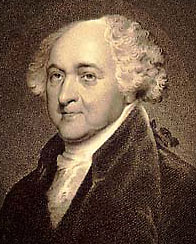"I'm Henery the Eighth, I Am"
In the third episode of The Tudors, Henry VIII is conferring with Charles V, the Holy Roman Emperor, about an alliance against France. As an aside, Charles tells Henry about Spain's discovery of the New World and all the gold General Cortés is raking in.
FYI, Charles V was the grandson of Ferdinand and Isabella of Spain. He ruled during the, er, golden era of Spanish exploration. As Wikipedia puts it:
"The Atlas of Independence"
In the first episode (Join or Die) of John Adams, a colonist notes that Britain has imposed taxes to pay for the recent war against the French and Indians. In the second episode (Independence), John Dickinson argues that declaring independence will set the Indians loose on America's borders.
The series missed several opportunities to refer to Indians. For instance, the Indian disguises used at the Boston Tea Party. Ben Franklin's interest in the Haudenosaunee League and its democratic form of government. And Thomas Jefferson's "merciless savages" line in the Declaration of Independence. (This last omission is probably for the best.)
For more on the subject, see Fun 4th of July Facts.
It remains to be seen whether John Adams will say anything about the Indians who fought on both sides of the Revolutionary War. Or about George Washington's destruction of 40 Seneca villages. I'm guessing not. Though it's mentioned slavery and shown one or two black men, it's unsurprisingly Eurocentric.
All in all, The Tudors is good but John Adams is great. It's one of the best series ever on the American Revolution. Rob's rating: 9.0 of 10.


No comments:
Post a Comment